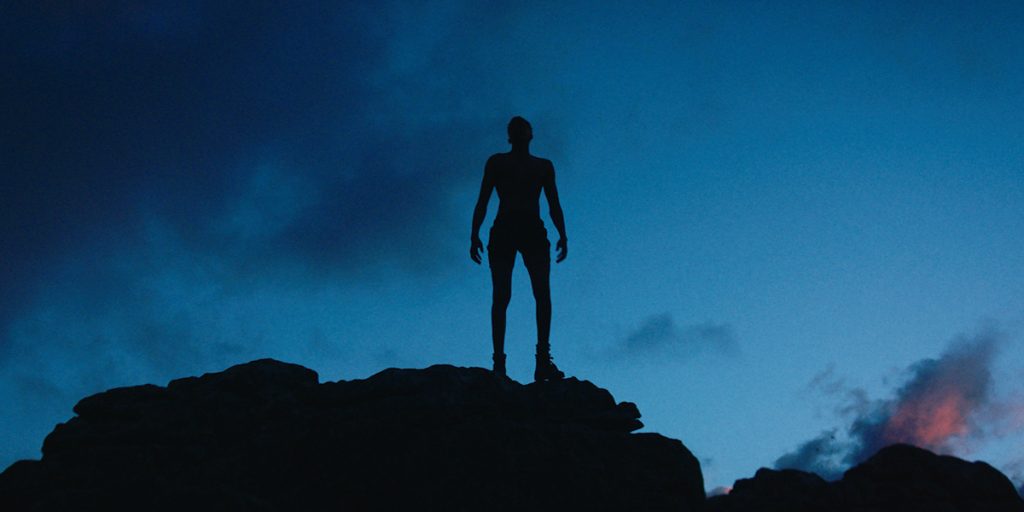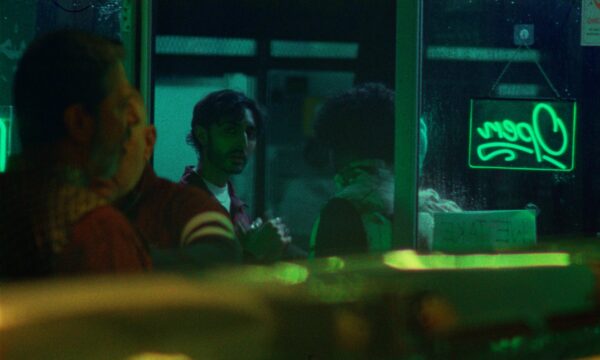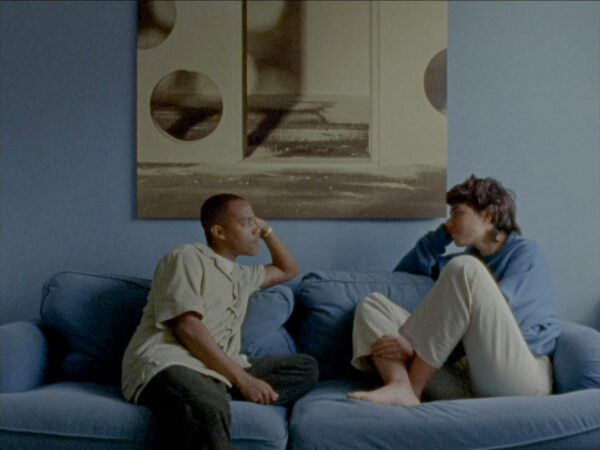When The Mountains Caught Fire
Heaven Reaches Down To Earth
Two young Black men are on a hike together. There are sparks of intense eroticism. But Tebogo Malebogo is not one to kiss and tell, nor are his characters.

After the translation of a personal experience of racial profiling in post-apartheid South Africa into his acclaimed short film Mthunzi (2019), Tebogo Malebogo returns to the festival circuit. Shot in the Limietberg Nature Reserve of South Africa with mainly the same crew, Heaven Reaches Down To Earth follows two young black men on a mountain hike. Ten minutes of dreamlike fragments from their trip, thinly layered with hazy magical realism and sparking with intense eroticism, explore their personal relationship.
Playing with aspect ratio, Malebogo jumps from wide shots of mountainous landscapes to a skin-close, tight framing of his characters. Janson Prins’ slick cinematography of the former amplifies both the calmness of mountains and the power of a campfire. The latter exudes the turmoil of their relationship. The emotions, an inflammable mix of desire and confusion, are palpable. The grainy realism of 4:3 images is clear-cut: this is where it happens. This is where the narrative will unfold. The characters themselves echo the qualities of the images: like a mountain, Tau is calm and confident. It’s the opposite for Tumelo, who’s alert, on edge, and restless like the embers of a fire.
So what does happen exactly? We don’t know. Tebogo Malebogo is not one to kiss and tell, nor are his characters. What happens in the mountains stays in the mountains. The young director smartly conducts time and perception, causing the confusion and hesitance of the characters to transfer over to the viewer. When night falls, we see the men climb. The rugged surface of the rocks becomes yearning skin as nature’s crevices offer a place to be. Yet the exploration is reluctant and voracious at the same time. A furtively exchanged gaze after the facts reveals the complexities and entanglements of these men’s emotional realms. Was the fever broken, or the fire lit? They will leave this place, carrying the intensity of the shared moments as a memory as cherished as it is haunting.
“And this is given once only.” The last words of whispering, then shouting omniscient voice-over accompanied by Elu Eboka and Evan Roth’s throbbing, hot-blooded soundscape confirm the reference to the film’s title. Both are quotes from André Aciman’s queer novel Call Me By Your Name. Malebogo names Luca Guadanigno’s adaptation of the film as an influence, and references to the narratives of other films like Ang Lee’s Brokeback Mountain or Francis Lee’s God’s Own Country are equally unavoidable.
Like the characters from these queer landmarks, the two South African men retire in a space outside of society. It allows them to embrace an exploration, a desire that has no chance to blossom elsewhere. Isolated from families and conventions, their hesitant and playful togetherness allows freedom, one that comes pouring out with the intensity of choked passion. Instead of defiance or confrontation with a heteronormative environment, we witness electrifying emotions wash over men that finally allow themselves to connect with each other and with themselves. We witness liberation.





There are no comments yet, be the first!